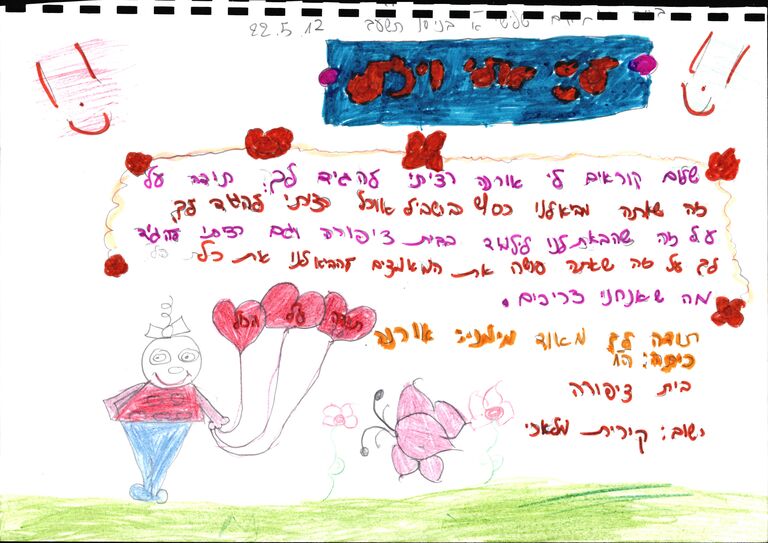Elie Wiesel Biography
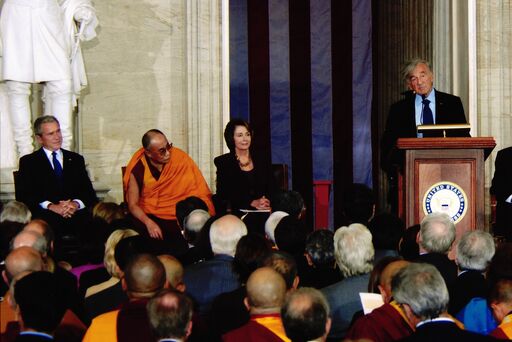
Eliezer (Elie) Wiesel was born on September 30, 1928. His family lived in the town of Sighet in the Carpathian Mountains (in modern Romania). Elie’s father, Shlomo Wiesel, was a shop owner and community activist. His mother, Sarah, helped in the shop and raised Elie alongside his three sisters. Elie grew up in a religious household speaking Yiddish, learning Hasidic stories and melodies from his grandfather, and attending traditional Jewish schools. Elie also studied the violin, played chess, and spent time with his large extended family.
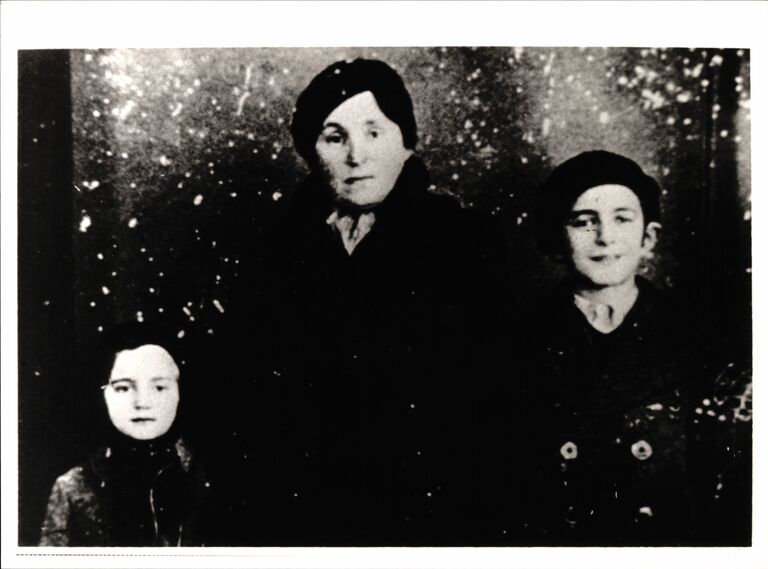
The Wiesel family lived a relatively normal life until March 1944, when the Nazi occupation of the region began. The Jews of Sighet and the surrounding towns were forced into a ghetto. In May, the fifteen-year-old Wiesel, along with his three sisters, parents, and 10,5000 people from his community, were sent to Auschwitz-Birkenau concentration camp. His younger sister, mother, and grandmother were killed upon arrival. Wiesel lied about his age to stay with the adult men, including his father, who were sent to the labor division of the camp.
In January 1945, the Nazis began to feel the pressure of the Soviet army closing in on Auschwitz. The Nazis forced most of the prisoners to evacuate by foot into the harsh winter conditions; this became known as the “death march” to Germany. Wiesel and his father were among the prisoners who survived and made it to Buchenwald. But Shlomo Wiesel, Elie’s father, died just 10 days later. In April, the Allies liberated Buchenwald, and the young Wiesel (just sixteen-years-old) was recognized as a minor and sent to France with other orphaned Jewish boys.
Wiesel was able to resume both his secular and religious education in France. The summer of 1945 was marked by an important family reunion: Elie’s older sister Hilda saw his picture in the newspaper, made contact, and the siblings reunited in Paris. Soon after, they discovered their other sister Beatrice was alive and quickly reunited with her as well.
Forging to build a life after the war, Wiesel attended university at the Sorbonne, where he studied philosophy and literature. Wiesel began working as a journalist, covering world events such as the creation of the State of Israel (1948).
Wiesel moved to the United States first as a foreign correspondent in 1956 and settled in New York City. He had just published a memoir in Yiddish, under the title, Un di velt hot geshvign (“And the Word Remained Silent,” 1956). Wiesel soon published an adaptation of the memoir in French as La Nuit (1958); it was translated into English and published as Night in 1960.
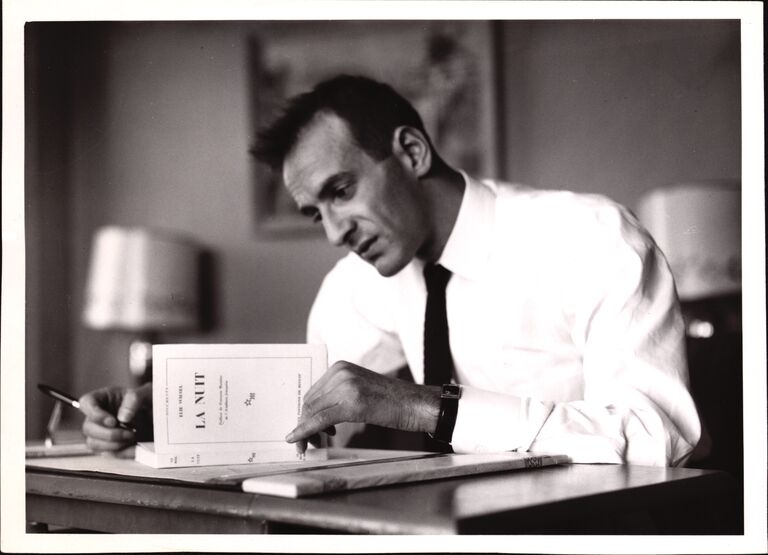
Wiesel’s writing and relentless advocacy on behalf of Holocaust survivors thrust him onto the international stage. Always careful to try to speak for himself, and not for all survivors nor those who perished, Wiesel’s testimony and clear convictions were groundbreaking.
"The only role I sought is that of a witness."
— Elie Wiesel
Wiesel wrote many novels, essays, and plays addressing themes of faith, protest, silence, friendship, loyalty, and moral madness. He opened conversations across the world about the moral imperatives of speaking truth to power and resisting the ultimate evil of indifference to the pain and suffering of other human beings.
In 1969, he married Marion Ester Rose. Their son, Shlomo Elisha, was born in 1972. Marion translated many of his future books into English, and she also led the couple’s Foundation for many years. Their family life also shifted some of the themes of Elie’s books from the struggles of the survivor to the struggles of survivors’ children. In total, Elie wrote 57 books over the course of his lifetime.
In addition to writing, Wiesel loved teaching. In 1966, he stared at lecture series at the 92nd Street Y in New York City on figures in the Jewish tradition. In the 1970s, he became a professor at City College of New York, and he later taught at Boston University and Eckard College. Course topics ranged widely, but all were centered around “The Literature of Memory.”
Wiesel also spoke to the world at large. His vast corpus of writings, together with an unrelenting pace of public lectures and commemorative activity (including chairing the committee responsible for the United States Holocaust Memorial Museum), played a major role in shaping the global idiom of Holocaust commemoration. Wiesel linked Holocaust remembrance to human rights vigilance, intervening on behalf of threatened groups worldwide. He was awarded the 1986 Nobel Peace Prize in recognition of these efforts.
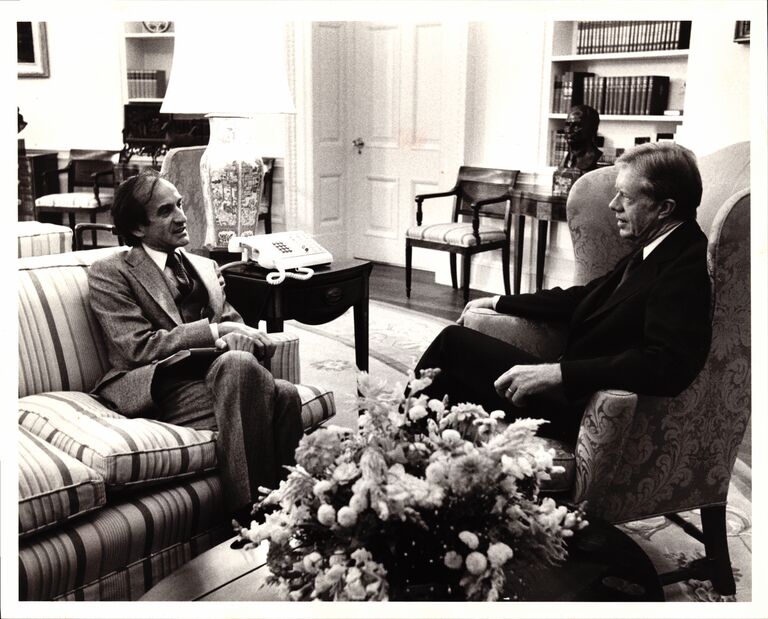
“... beyond all [Wiesel’s] many other accomplishments, he has championed the fight against the greatest bane of mankind—intolerance and indifference. His sole intent, it seems, is to prevent apathy and disdain from ever again paralyzing any people as they did during the Second World War. His life has not only been dedicated to the betterment of the Jewish people, but to the enlightenment of all peoples.”
— Sen. Joe Biden, letter of nomination for Wiesel’s Nobel Prize, November 1983
Wiesel frequently called indifference the greatest evil. He spent his life writing, speaking, and teaching not on behalf of the Jews who had perished but for himself and his own desire to prevent such tragedies from occurring again. Wiesel returned to Auschwitz and Buchenwald several times: with fellow survivors in 1988, with a camera crew for a documentary about his live in 1995, and in 2009 with President Barack Obama and Chancellor Angela Merkel.
Not content to keep the memory of the Holocaust alive, Wiesel and his wife used the funds from the Nobel Peace Prize to fight injustice around the world through the Elie Wiesel Foundation for Humanity (EWF). The EWF hosted international summits against hate such as the Israeli-Palestinian conflict, Bosnia and Herzegovina, Northern Ireland, and apartheid South Africa. The EWF also funds after-school programs in Israel for the children of Ethiopian migrants and refugees of Darfur. It also sponsors prizes for humanitarian efforts by world leaders and essay contests on ethics.
After battling a number of illnesses, Wiesel passed away on July 2, 2016. His legacy nevertheless continues to grow and expand.
